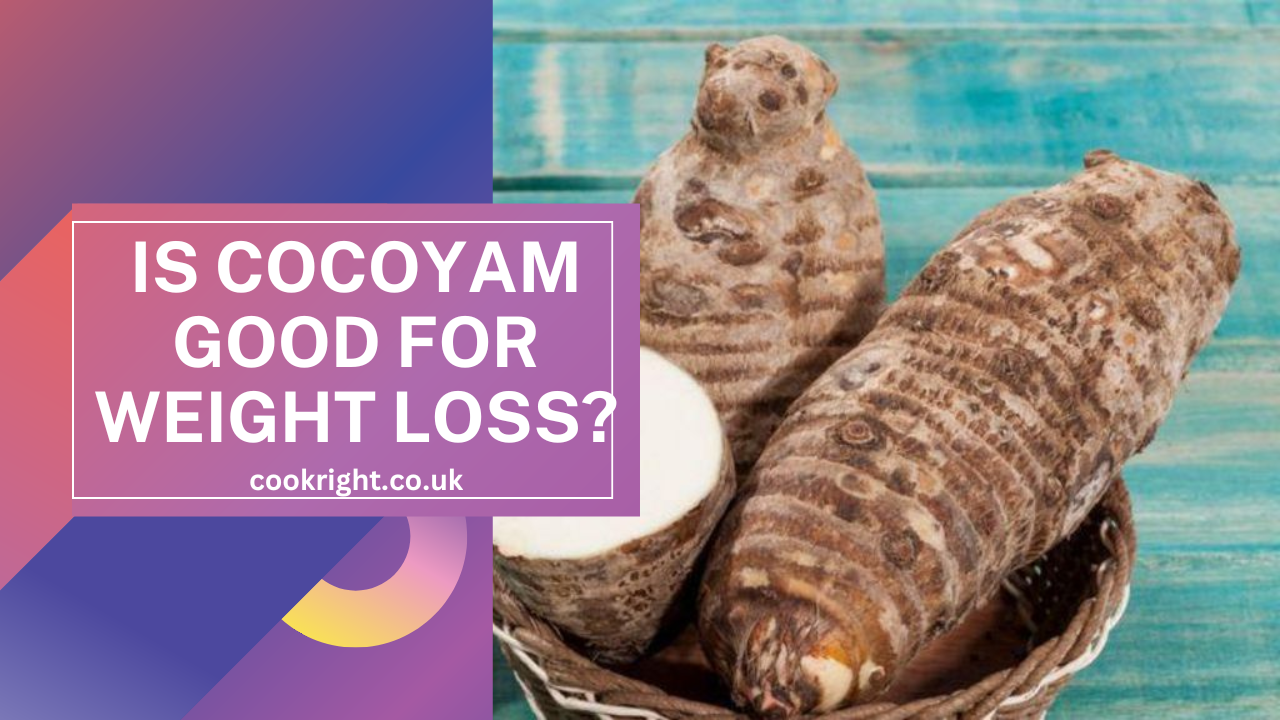In the quest for effective weight loss strategies, many people turn to various foods, exploring their nutritional benefits and potential to aid in weight management. One such food that often enters the conversation, particularly in certain regions of the world, is cocoyam. Known for its versatility and rich nutrient profile, cocoyam is a staple in many traditional diets. But the burning question remains: is cocoyam good for weight loss? Let’s dive into the nutritional facts, benefits, and potential downsides of incorporating cocoyam into a weight loss regimen.
What is Cocoyam?
Cocoyam is a root vegetable commonly grown in tropical and subtropical regions, primarily in Africa, Asia, and the Pacific Islands. It comes in two main varieties: Colocasia (taro) and Xanthosoma. Both varieties are starchy tubers that resemble potatoes in texture and appearance but have a unique, slightly nutty flavor. Cocoyam is used in a variety of dishes, including soups, stews, porridges, and as a standalone side dish.
Nutritional Profile of Cocoyam
Understanding cocoyam’s nutritional content is key to evaluating its role in weight loss. Here’s a breakdown of its primary nutrients:
- Calories: Cocoyam is relatively high in calories due to its starchy nature, with about 142 calories per 100 grams.
- Carbohydrates: It contains approximately 34 grams of carbohydrates per 100 grams, making it a high-carb food.
- Fiber: Cocoyam is a good source of dietary fiber, with around 5 grams per 100 grams, which aids digestion and helps maintain a feeling of fullness.
- Protein: It contains about 1.5 grams of protein per 100 grams, which is relatively low compared to other sources.
- Vitamins and Minerals: Cocoyam is rich in essential vitamins and minerals, including Vitamin C, Vitamin B6, magnesium, potassium, and iron.
- Antioxidants: It also contains bioactive compounds such as phenolic acids and flavonoids, which have antioxidant properties.
How Cocoyam Can Aid in Weight Loss
- High Fiber Content: One of the standout features of cocoyam is its high fiber content. Fiber plays a crucial role in weight management by promoting satiety and reducing overall calorie intake. When you feel full, you’re less likely to snack on unhealthy foods or overeat during meals. Fiber also aids in digestion, helping to maintain a healthy gut, which is essential for effective metabolism.
- Low Glycemic Index: Cocoyam has a relatively low glycemic index (GI) compared to other starchy foods like potatoes and white rice. Foods with a low GI release glucose slowly into the bloodstream, preventing spikes in blood sugar levels. Stable blood sugar levels are crucial for controlling hunger and reducing cravings, which can support weight loss efforts.
- Rich in Resistant Starch: Resistant starch acts like fiber in the digestive system. It passes through the small intestine without being digested, reaching the large intestine where it ferments and feeds beneficial gut bacteria. This process produces short-chain fatty acids that can improve metabolism and reduce fat storage.
- Nutrient Density: Cocoyam is packed with essential nutrients that support overall health, which is vital when you are on a weight loss journey. It provides vitamins and minerals that can help maintain energy levels, support muscle function, and improve immune health, all of which are important when cutting calories or increasing physical activity.
- Moderate Caloric Content: Although cocoyam is calorie-dense due to its carbohydrate content, when consumed in moderation, it can be part of a calorie-controlled diet. Portion control is key, as cocoyam can be satisfying without requiring large quantities to feel full.
Potential Downsides of Cocoyam for Weight Loss
- High Carbohydrate Content: While carbohydrates are essential for energy, consuming them in excess can hinder weight loss, especially if you lead a sedentary lifestyle. For those following low-carb or ketogenic diets, cocoyam may not be the best choice.
- Caloric Density: Given that cocoyam is calorie-rich, portion control is critical. Overeating cocoyam, even though it is a nutritious food, can lead to a caloric surplus, which could stall or reverse weight loss progress.
- Preparation Methods: The way cocoyam is prepared can significantly impact its suitability for weight loss. Frying cocoyam or adding high-calorie sauces can negate its benefits. Boiling, steaming, or baking are healthier preparation methods that preserve its nutritional integrity.
Tips for Incorporating Cocoyam into a Weight Loss Diet
- Mind Your Portions: To reap the benefits of cocoyam without overloading on calories, stick to moderate portions. Pairing cocoyam with protein-rich foods and plenty of vegetables can create a balanced meal that supports weight loss.
- Opt for Healthy Preparations: Steaming, boiling, or baking cocoyam are the best methods to keep it healthy. Avoid frying or adding excessive fats and sugars, which can increase its calorie count.
- Balance Your Macros: While cocoyam is a good source of carbs and fiber, ensure you balance your meals with adequate protein and healthy fats. This balance is key to maintaining energy levels and promoting fat loss.
- Incorporate into Soups and Stews: Adding cocoyam to soups and stews can help you enjoy its benefits while consuming fewer calories overall. It can act as a thickening agent, adding texture and flavor without the need for calorie-dense thickeners like cream.
- Pair with Exercise: Like any dietary approach to weight loss, combining cocoyam consumption with regular physical activity can enhance results. The carbohydrates in cocoyam can provide the energy needed for workouts, supporting your overall fitness goals.
Final Thoughts
Cocoyam can be a beneficial food for weight loss when consumed mindfully and in moderation. Its high fiber content, low glycemic index, and resistant starch make it a valuable addition to a balanced diet. However, due to its high carbohydrate and caloric content, portion control is essential. By choosing healthy preparation methods and pairing cocoyam with a balanced diet and regular exercise, you can effectively incorporate this nutritious root vegetable into your weight loss journey.
Remember, weight loss is a complex process that varies from person to person. It’s important to consider your overall diet, lifestyle, and personal health needs when deciding whether cocoyam is a good fit for your weight loss plan. Consulting with a healthcare provider or a nutritionist can provide personalized advice and help you create a diet plan that aligns with your goals.








